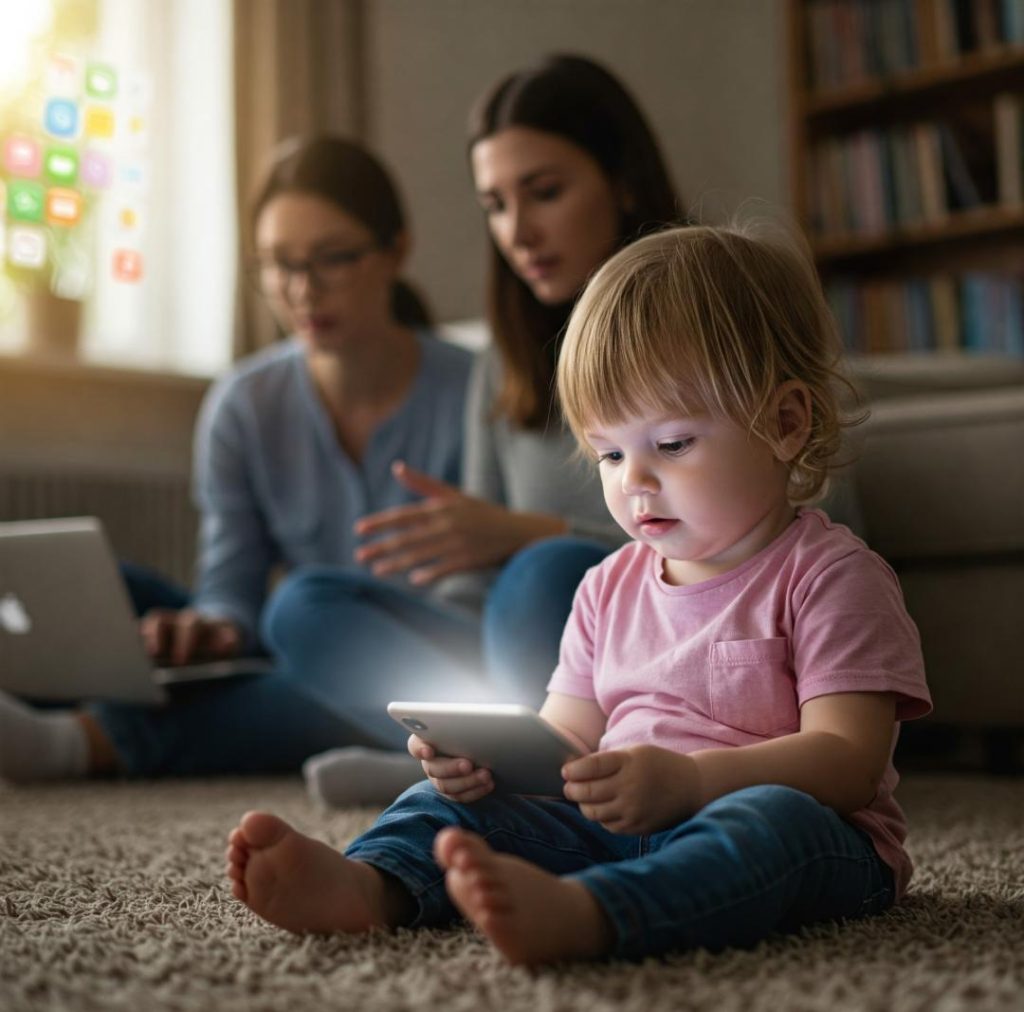
Parenting, Screens & Conditioning: A Digital Age Concern
The digital age has transformed the way we live, communicate, and interact with each other. While technology has brought numerous benefits, it has also raised concerns about its impact on children’s behavior and development. A recent incident in Jammu & Kashmir, where a child was found watching adult content on YouTube despite having the restricted mode enabled, highlights the pressing issue of poor screen regulation and lack of parental interaction.
In today’s tech-driven world, it is essential for parents to be aware of the conditioning their children are exposed to through screens. The concept of classical conditioning, first introduced by Ivan Pavlov, can help us understand how children learn and respond to stimuli. In the context of screen time, classical conditioning can lead to addiction, as children are repeatedly exposed to the stimuli (screens) and associate it with rewards (entertainment, social interaction, etc.).
Classical conditioning is a process where a neutral stimulus becomes associated with an unconditioned stimulus to elicit an unconditioned response. In the case of screen time, the neutral stimulus is the screen itself, and the unconditioned stimulus is the content being displayed. When children are repeatedly exposed to screens, they learn to associate the two stimuli, leading to an unconditioned response – addiction.
The consequences of screen addiction in children are far-reaching. Excessive screen time has been linked to a range of problems, including attention deficit hyperactivity disorder (ADHD), sleep disturbances, and social isolation. Moreover, it can also impact children’s physical health, as they spend less time engaging in physical activities and more time sitting in front of screens.
So, how can parents curb smartphone addiction in kids? The answer lies in mindful parenting and active involvement. Mindful parenting involves being aware of your child’s screen time and setting boundaries to ensure a healthy balance between screen time and other activities. This can include limiting screen time to specific hours of the day, setting screen-free zones in the home, and engaging in activities with your child that promote physical and mental well-being.
Active involvement is also crucial in shaping children’s behavior. Parents should take an active role in monitoring their child’s screen time and engaging in conversations about the content they are viewing. This can help children develop critical thinking skills, make informed choices about the content they consume, and understand the impact of screens on their lives.
Moreover, parents can also use classical conditioning to their advantage. By setting clear boundaries and consequences for excessive screen time, parents can help children associate screens with negative outcomes, leading to a reduction in screen addiction.
In addition to mindful parenting and active involvement, parents can also play a critical role in shaping children’s behavior through emotional bonding. Emotional bonding involves building a strong, loving relationship with your child, which can help them feel secure and valued. This can be achieved through activities such as reading together, playing games, and having open and honest conversations.
Emotional bonding can also help children develop emotional intelligence, which is essential for making healthy choices and developing a positive self-image. In today’s tech-driven world, emotional intelligence can help children navigate the challenges of social media and develop healthy relationships with others.
In conclusion, the incident in Jammu & Kashmir highlights the pressing issue of poor screen regulation and lack of parental interaction. By understanding the concept of classical conditioning and mindful parenting, parents can take a proactive approach to curbing smartphone addiction in kids. Active involvement, emotional bonding, and setting clear boundaries can help children develop healthy habits and a positive relationship with screens.
As parents, it is essential to recognize the impact of screens on our children’s behavior and development. By taking a proactive approach to screen regulation and engaging in activities that promote physical and mental well-being, we can help our children develop into happy, healthy, and well-adjusted individuals.






